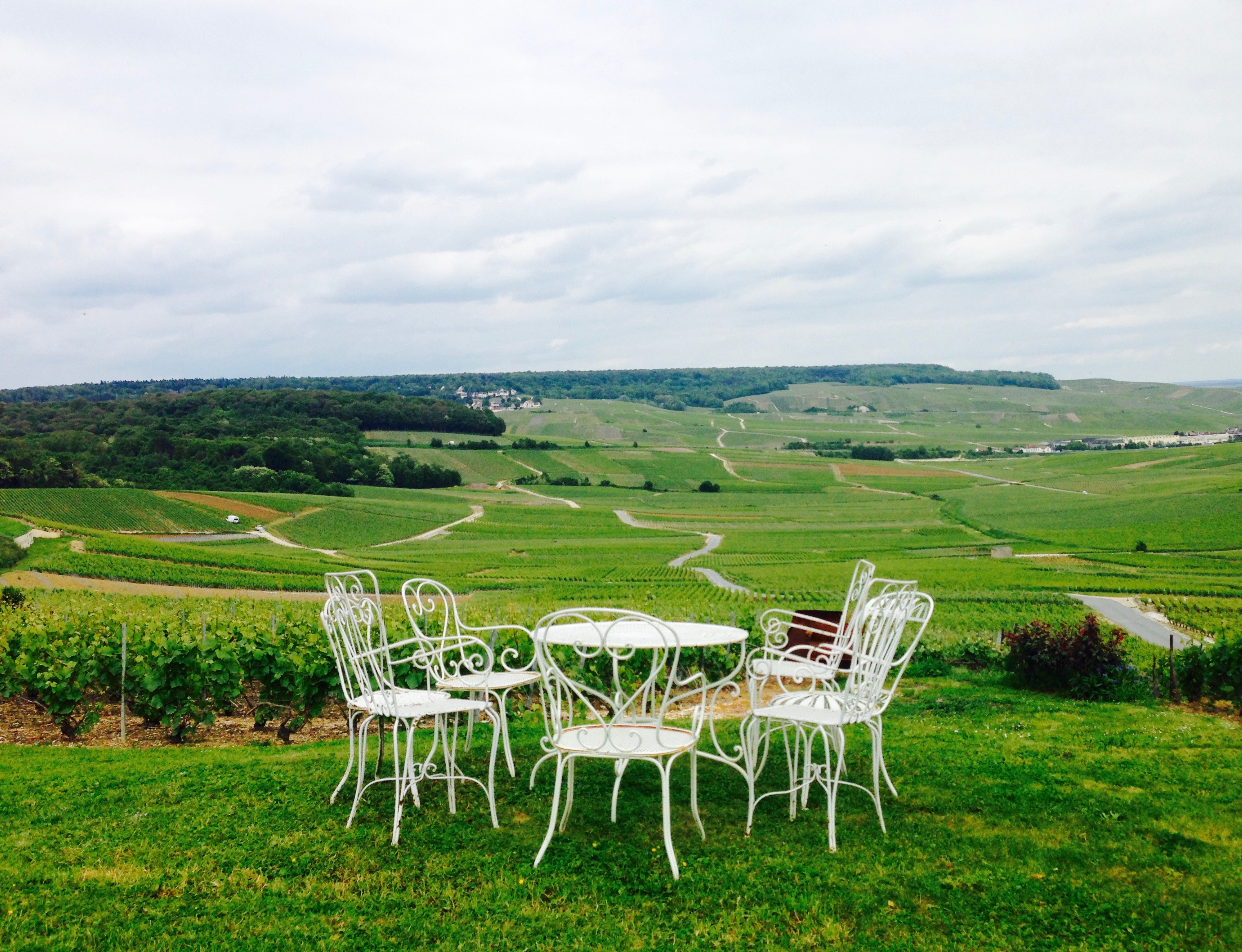Many people don’t know this, but champagne can only come from the aptly named region in France. Everything else is just “sparkling wine”. So today we’re off to the Avenue de Champagne to explore my two favorite vintners Veuve and Taittinger! Here is a complete guide to the Champagne region of France!

Driving to Epernay, the capital of the Champagne region.
When to Go to the Champagne Region
The Champagne region of France is located in the northeastern part of the country, just a little over an hour’s drive outside Paris. So if you are looking for a day trip to tack on to your jaunt to Paris, consider a tour of a wine cellar or two. This a perfect excursion for a couple or for a big group of friends, we made this a romantic getaway, but a fun wine tour with the girls is a great idea too!
Weather wise, you are in northern France, so weather suggestions are the same as they are for Paris, late spring and early fall are best. My personal travel tip, you can never go wrong with late May/early June anywhere in Europe.

Owning a Champagne vineyard is definitely on my to do list after this trip.
First stop, Veuve!

Founded in 1772, Veuve Cliquot is certainly one of the world’s most well known Champagne houses. Its yellow labels are synonymous with celebration, class and chic night clubs. My first word of advice here is that to tour the headquarters you need to make a reservation far in advance as tours are limited and fill up weeks ahead of time. Tickets are not available at the door. Like all tours, it begins with a less than enthusing intro but you are quickly brought down into their wine caves where it gets a lot more interesting (Pro tip: even in summer bring a sweater because it is chilly in the caves).

All the caves are ancient chalk mines, which makes them naturally the right temperature for the wine.

The guide will explain that all the caves they use were ancient chalk mines used hundreds of years ago. It’s amazing that all the wine ages down there. You’ll walk through long tunnels and the guide loving explains what vintages are stored where and why they are there. Oh and by the way, “magnums” are not the biggest bottles of wine they make, there are several other sizes, going all the way up to a monstrosity called a “Nabuchodonosor” which contains 20 bottles worth of bubbly.
For reference, the bottle on the far right is a half bottle of wine. #Party
After listening patiently for over a half hour, you get rewarded in the most French way possible. A bunch of free expensive wine—definitely a highlight.

How’s that for a bottomless brunch?
Second stop, Taittinger!
Taittinger’s tour is a little different, a bit homier than Veuve’s. Which makes sense, I feel like you buy Veuve at a club in New York, but George Clooney drinks Taittinger with Amol on Lake Como. Either way it’s a win win, so I highly recommend venturing out to at least 2 wineries if you make the trek to Reims or Epernay.



You can really get up close and personal.


Where to Eat in Champagne, France
Since all the wineries are closed for lunch, take your own 3-hour break and enjoy a lengthy 3-course meal from the Michelin guide recommended, La Cave a Champagne. The prix fixe menu is a must. But remember, you aren’t in Paris anymore so you have to be a little more adventurous than steak frites.

Typically French salmon avec creamy lentils.

An inventive take on rice pudding.

Who doesn’t enjoy a perfectly executed pommes tarte?
Where to Stay in the Champagne Region of France
Look for rustic charm when picking your lodging in Champagne. We chose to stay in Epernay so we could explore the vineyards after our winery tours in Reims.
So French: The Hotel Jean Moet is right off of the Avenue of Champagne and is a fantastic little high-end village halt. Throwback front desk, and large rooms with huge windows make for a perfect place to relax after a day of bubbly and pastries. ($200+ shoulder season)


